Photo

Cymraeg (Welsh) God Beli Mawr and Hellenic (Greek) God Helios
Both considered gods of the sun, both have daughters who are considered witches
6 notes
·
View notes
Text
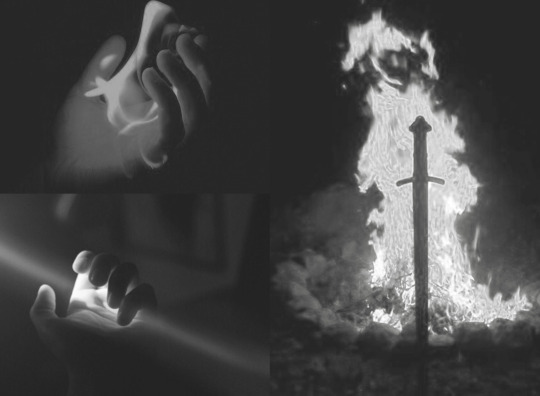
Tri Thiws ar Ddeg Ynys Prydain | Thirteen Treasures of the Island of Britain Series: 1/13 - Dyrnwyn, the Sword of Rhydderch Hael
The Dyrnwyn ("White-Hilt") is said to be a powerful sword belonging to Rhydderch Hael,[3] one of the Three Generous Men of Britain mentioned in the Welsh Triads. When drawn by a worthy or well-born man, the entire blade would blaze with fire. Rhydderch was never reluctant to hand the weapon to anyone, hence his nickname Hael meaning "the Generous", but the recipients, as soon as they had learned of its peculiar properties, always rejected the sword.
#we learn our history so we don't repeat it#this is the time to awaken Arthur#Arthur is welsh#merlin is Myrddin and lives in camarthen#independence is crawling ever near#welsh cultus#tylwyth teg#iolo morganwg was a liar#local folklore#the welsh gods#hud#cymraeg polytheism#welsh polytheism#welsh witchcraft#you shouldn't have removed your fathers head from the white hill Arthur!
32 notes
·
View notes
Photo


Welsh Artist Series: Z
Ernest Zobole (1927 -1999)
4 notes
·
View notes
Text
Up- Coming Aesthetic Series’
New
Welsh Royalty - historical
Welsh-born Artists (visual) - art history
Art Movements (focus on world not just western) - art history
Ongoing
Monthly aesthetics
Fanfic Aesthetics
OTP Series
Classic Literature series
Currently Reading Series
The Sonnets and the Theoi
Delphic Maxims
The Gods in Wingding Font Series
The Gods and Objects Series
Animal Associations
Greek Myth and Folklore Series
Anemoi
Gods
Personified Spirits
Lovers of Zeus
Welsh/Cymraeg Myth and Folklore Series
Gods
The Fair Family
Creatures
Hellenic and Cymraeg Mythology Parallel Series
Greek History Series
historical lovers series
Welsh history series
Favourite Visual Artists
0 notes
Photo
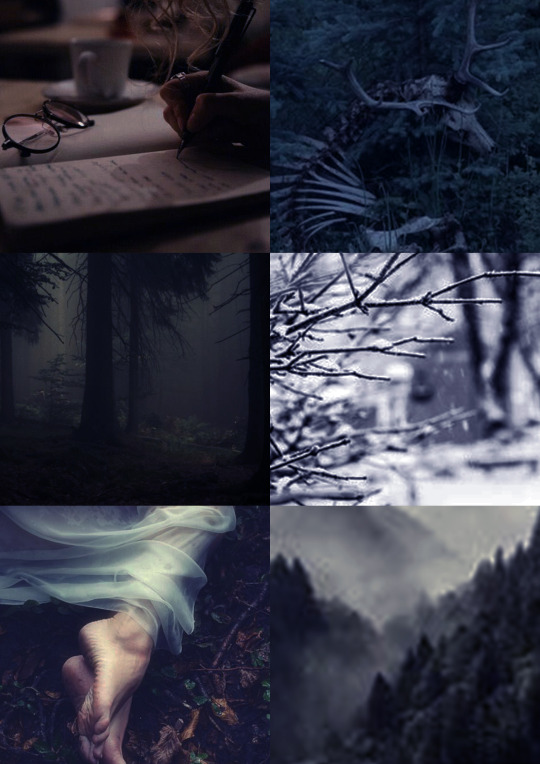
Monthly Aesthetics: 1 | 2 | 3 Dark January
Keen blows the bitter spirit of the North,
And, like a warrior foil'd, with powerless beam
The sun eyes wistfully the frost-bound stream,
As if he long'd, though vainly, to call forth
His by-gone strength, that he might deck the earth
In all her summer beauty, and set free
River and brooklet, till, towards the sea
Onward they bounded with melodious mirth.
But many a storm, ere that may be, shall blow,
And many a cloud frown darkling o'er the sky;
And be it so, if but affection's glow
Play round the lips, and brighten in the eye,
When round the hearth long-sever'd friends do meet,
(So ancient usage claims,) the opening to greet.
January by Rebecca Hay
6 notes
·
View notes
Photo
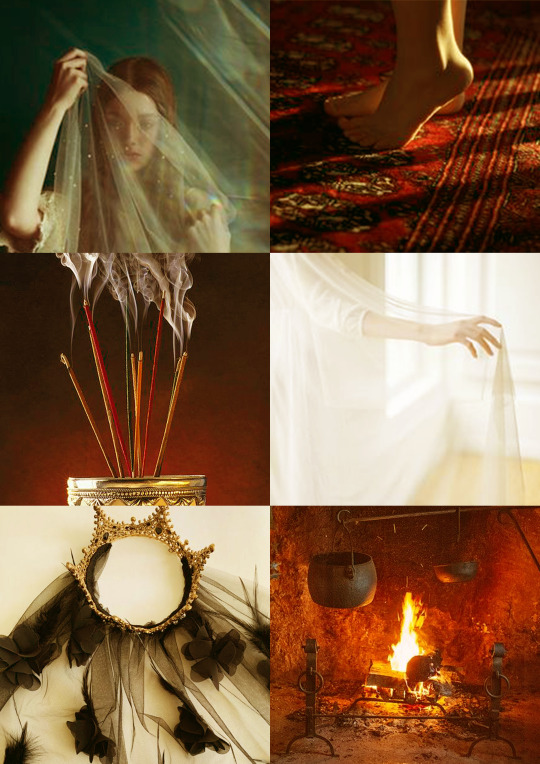
HESTIA - GODDESS OF THE HEARTH
“Hestia (Hearth) is a member of the older generation of Olympians, offspring of the Titans Kronos and Rhea (Hesiod Theogony 453-500). Indeed, she is said to be both the eldest and the youngest of her siblings (Homeric Hymn to Aphrodite 22-23), eldest because she was the first-born, but also youngest, for Kronos swallowed his children as they were born, and when subsequently he was given an emetic and disgorged them, they reappeared in reverse order, so that Hestia emerged last. Hestia’s residence in her father’s belly is therefore treated as a second period of gestation, and his spewing her up, as a second parturition.
Although the elder Olympian Poseidon and the younger Olympian Apollon each wooed Hestia, she turned them down , swearing an oath that she would remain a virgin forever. In place of marriage, Zeus granted her the privilege of enjoying the fat of sacrificial meats in the center of each house, and she is honoured in all temples and enjoys honour among all mortals as the eldest of the gods (Homeric Hymn to Aphrodite 22-32). So, like the younger Olympians Artemis and Athena, Hestia chooses to remain a maiden, and Zeus allots to her the cosmic honour of being the hearth, the locus of sacrificial rites. Accordingly she is bi-natural, being at once the physical hearth with its fire and also an anthropomorphic goddess who can enjoy the rich juices that issue from a sacrificial victim. Since her name signifies simply ‘hearth,’ a hestia (hearth) derives its name from the given name of the goddess or, like Atlas (Bearer), the goddess was named proleptically.
Important in cult but not mythology, Hestia appears in few myths. Her Roman equivalent is Vesta.
Suggested reading:
Marcel Detienne. The Writing of Orpheus: Greek Myth in Cultural Contact, trans. by Janet Lloyd. Baltimore: The John Hopkins University Press, 2003, 59-69.
Tobias Fischer-Hansen. “Vesta,” in LIMC 5:412-420
Timothy Gantz. Early Greek Myth: A Guide to Literary and Artistic Sources. Baltimore: The John Hopkins University Press,1993, 73-74.
Haiganuch Sarian. “Hestia,” in LIMC 5:407-412″
— Hansen, W (2005) Classical Mythology: A Guide to the Mythical World of the Greeks and Romans. Oxford University Press, New York
187 notes
·
View notes
Text
If you enjoyed my aesthetics I would be eternally grateful if you donated and/or shared this post please
Ok guys, I don’t like to do this but I am struggling at the moment, as I am still helping my mother out financially.
Christmas and paying my own rent, and not getting paid this week as a supply teacher since the schools closed early means i won’t get paid for another two weeks
If anyone can help out I will be eternally grateful.
Heres my KO-FI, I will send a thank you card to anyone who donates (if you wish, just send me your address in a private message)
I am also going to putting some art up on KO-FI to sell in the next week if anyone would like to help me out that way.

16 notes
·
View notes
Text
Ok guys, I don’t like to do this but I am struggling at the moment, as I am still helping my mother out financially.
Christmas and paying my own rent, and not getting paid this week as a supply teacher since the schools closed early means i won’t get paid for another two weeks
If anyone can help out I will be eternally grateful.
Heres my KO-FI, I will send a thank you card to anyone who donates (if you wish, just send me your address in a private message)
I am also going to putting some art up on KO-FI to sell in the next week if anyone would like to help me out that way.

16 notes
·
View notes
Photo

Modern Gods Series 1 | 2 : Llyr
My UPG is that Llyr returns from sea in the spring, returning home to meet his wife Penarddun in their cottage by the sea. Thats where they both stay until the Autumn comes and they seperate. Llyr to the sea and Penarddun to the mountains, woodlands, and forests.
#Cymraeg polytheism#welsh polytheism#welsh myth#welsh folklore#welsh magic#iolo morganwg is most likely a fake#for love of Llyr#the children of darkness have my soul#manawydan#Bran the blessed#Branwyn#rhiannon#ceridwen#pryderi arawn#wales#cymru#the land of my fathers#hen wlad fy nhadau
13 notes
·
View notes
Photo

Modern Gods Series 1 : Penarddun
I have a UPG where Penarddun and Llyr own a modern but vintage cottage by the sea, which they use as a homebase for the both of them to return to in the spring. When Penarddun returns from her walks across the forests and mountains of Wales and Llyr swims the winter sea surrounding it. They both meet up with their son Manawyddan regularly when they are alone and together.
#Cymraeg polytheism#welsh polytheism#welsh myth#welsh folklore#welsh magic#iolo morganwg is most likely a fake#for love of Llyr#the children of darkness have my soul#manawydan#Bran the blessed#Branwyn#rhiannon#ceridwen#pryderi arawn#wales#cymru#the land of my fathers#hen wlad fy nhadau
7 notes
·
View notes
Photo

Monthly Aesthetics: 1 | 2 | 3 Dark December
How like a winter hath my absence been
From thee, the pleasure of the fleeting year!
What freezings have I felt, what dark days seen!
What old December’s bareness everywhere!
And yet this time removed was summer’s time;
The teeming autumn, big with rich increase,
Bearing the wanton burden of the prime,
Like widow’d wombs after their lords’ decease:
Yet this abundant issue seemed to me
But hope of orphans, and unfathered fruit;
For summer and his pleasures wait on thee,
And, thou away, the very birds are mute:
Or, if they sing, ’tis with so dull a cheer,
That leaves look pale, dreading the winter’s near.
Sonnet 97 by William Shakespeare
54 notes
·
View notes
Photo
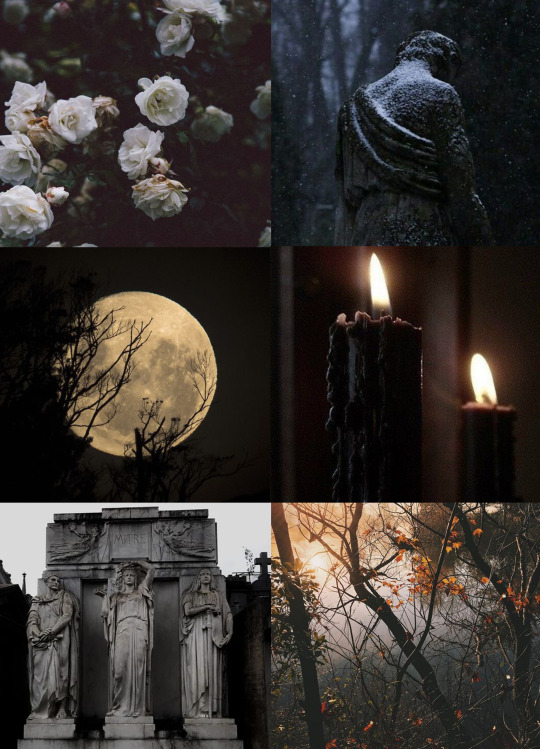
Monthly Aesthetics - Dark November 1 | 2 | 3
The low dull, hollow sound within the forest,
The leafy tree that seems to stand aghast
Beside the ghostly lines of flickering shadow,
Proclaim the summer gone, the harvest past.
The rustling reeds that erst gave up their juices
To sighing winds, are standing stark and gray;
Health breezes blow among the pines and spruces,
And down the rocky leaf-strewn gorges play.
November by William Wallace Maxim
27 notes
·
View notes
Photo

Images from [HERE]
Irish Mythology Series: 1 - Abarta or Ábartach
ABARTA, which probably means ‘doer of deeds’, was, in Irish Mythology, a mischievous god. He was one of the TUATHA DE DANANN, who ruled Ireland until they were overcome by Milesians, war-like invaders from Spain. Driven underground , Abarta and his kin appear in Irish sagas more like heroic mortals than gods, although in the tale of his trick on the Fenian warriors there remains a strong trace of his original divinity.
Abarta offered himself as a servant to FINN MACCOOL, one of the foremost Irish heroes, and hereditary leader of the FIANNA. Abarta tried to serve Finn MacCool shortly after the hero had succeeded his father as leader of the band. As a gesture of goodwill, tricky Abarta presented the Fianna with a wild, grey horse. Only after great effort did the warriors manage to get a bridle on the animal., and then it refused to move even one hoof when mounted. It was not until fourteen warriors had climbed on its powerful back that it would stir at all. Once Abarta had mounted behind them, it broke immediately into a gallop, even pulling along a fifteenth warrior who was unable to let go of the horse’s tail. Abarta took them to the Otherworld, for that was the reason for his appearance on Earth.
This wonderful lans was thought by the Celts to be the home of the gods and goddesses, and the place where souls briefly rested before rebirth.
The rest of the Fianna , or Fenians , acquired a magic ship to give chase to Abarta’s steed. The best tracker among them was Finn MacCool’s assistant Foltor. He succeeded in navigating a course to the Otherworld for the rescue expedition. There Abarta was compelled to release the prisoners as well as to run back to Ireland himself holding on to the horses’ tail. Honour being satisfied, the Fenians agreed to a peace with Abarta
-Cotterell A, 2010. The Encylopedia of Mythology: Norse, Greek and Roman, Celtic. Anness Publishing, London. U.K.
8 notes
·
View notes
Photo

Currently Reading Series 1/_: Southern Vampire Mysteries/ TrueBlood Novels
Sookie Stackhouse enjoys her job as a cocktail waitress in Merlotte's, a small-town bar in small-town Bon Temps, deep in Louisiana. She's funny and pretty and, thanks to her grandmother, she's very well-mannered - but since not many people truly appreciate her ability to read their minds, the guys haven't exactly been beating down her door ...
And then along came Bill, tall, dark and handsome - and Sookie couldn't 'hear' a word he was thinking. He was exactly the type of guy she'd been waiting all her life for. Of course, Bill had a disability of his own: fussy about his food, not into suntans, bit of a night person: yep, Bill was a vampire.
But at least now Sookie nows there *are* guys she can date who won't worry about her catching them thinking about other women ...
#southern vampire mysteries#trueblood#sookie stackhouse#aesthetics#currently reading#reading#reading challenge#2020 reading challenge#goodreads
16 notes
·
View notes
Photo

Welsh Myth and Folklore 6/? : Aranrhod/Arianrhod -Goddess of the sky and fertility. (The Silver Wheel)
Requested by @mymoonlitwitchcraft
The virgin goddess. Aranrhod (Arianrhod) was the daughter of the goddess Don and the god Beli. Aranrhod was the sister of Amathon, Gilvaethwy, Govannon, Gwydyon and Nudd . Aranrhod was the goddess of the sky and fertility.
Aranrhod gave birth to Dylan and Lleu, when she stepped over the magic wand of uncle Math, to prove that she was a virgin. Her brother Gwydyon adopted her son Lleu as his own, while some would say that Gwydyon was actually the father of Dylan and Lleu.
Aranrhod refused to recognise Lleu as her own son. Aranrhod gave three curses to her son instead of three blessings. Aranrhod refused to give Lleu a name, weapons and armour when he reached manhood and cursed her son that she could not marry a woman of any race of people. Her brother Gwydyon tricked Aranrhod into Lleu: his name and later the weapons.
Aranrhod’s third curse was the most difficult to overcome. Gwydyon called upon his uncle King Math to aid him in finding a bride for Lleu. With their combined magic, they created a woman out of flowers. This flower-woman was named Blodeuedd, and she was the most beautiful woman in the world, but she turned out to be an unfaithful wife to Lleu, which had almost cost him his life.
#welshmythandfolkloreseries#welsh gods#Cymraeg polytheism#welsh polytheism#welsh myth#welsh folklore#welsh magic#iolo morganwg is most likely a fake#for love of Llyr#the children of darkness have my soul#manawydan#Bran the blessed#Branwyn#rhiannon#ceridwen#pryderi arawn#aranrhod#arianrhod
28 notes
·
View notes
Photo
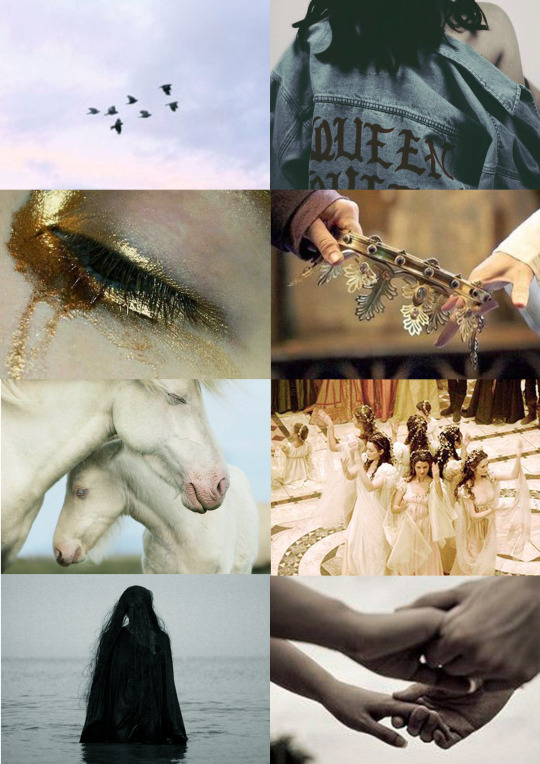
Welsh Myth and Folklore 5/? : Rhiannon - Goddess of Sovereignty and Horses (The Mare of Sovereignty. The Great Queen)
“She is the nightmare, the whispers of wisdom that come to us in dreams. She is indicative of many traits of the human condition; she instills wisdom and guides her husband to be of greater care; she is loving, faithful, and accepting of her fate. She is the sorrowful queen, the embodiment of grief and bereavement, compassion and humility. Aligning oneself to Rhiannon is to wander into her halls of teaching, of taking counsel before her; by listening to her wisdom, we learn much about our own inherent humanity… As a magical ally, Rhiannon connects us to the land beneath our feet and our place in time and tribe. She is an effective ally for magic concerning deep emotional healing and help, grief and heartbreak being her forte.“
Hughes, K. (2018) The Book of Celtic Magic: Transformative Teachings from the Cauldron of Awen. Llewellyn Publications: Minnesota U.S
Rhiannon is a major figure in the Mabinogi, the medieval Welsh story collection. She appears mainly in the First Branch of the Mabinogi, and again in the Third Branch. She is a strong-minded Otherworld woman, who chooses Pwyll, prince of Dyfed (west Wales), as her consort, in preference to another man to whom she has already been betrothed. She is intelligent, politically strategic, beautiful, and famed for her wealth and generosity. With Pwyll she has a son, the hero Pryderi, who later inherits the lordship of Dyfed. She endures tragedy when her newborn child is abducted, and she is accused of infanticide. As a widow, she marries Manawydan of the British royal family and has further adventures involving enchantments.
#welshmythandfolkloreseries#welshgods#Cymraeg polytheism#welsh polytheism#welsh myth#welsh folklore#welsh magic#iolo morganwg is most likely a fake#for love of Llyr#the children of darkness have my soul#manawydan#Bran the blessed#Branwyn#rhiannon#ceridwen#pryderi arawn
97 notes
·
View notes
Photo
People are really liking my Llyr aesthetic

you can request a aesthetic or mood board by commenting or messaging me :)

Welsh Myth and Folklore 3/ : Llyr - Welsh God of the Sea, Magic, and Healing
Llyr is the leader of ‘The Children of Darkness’ one of two warring Welsh groups
Keep reading
179 notes
·
View notes